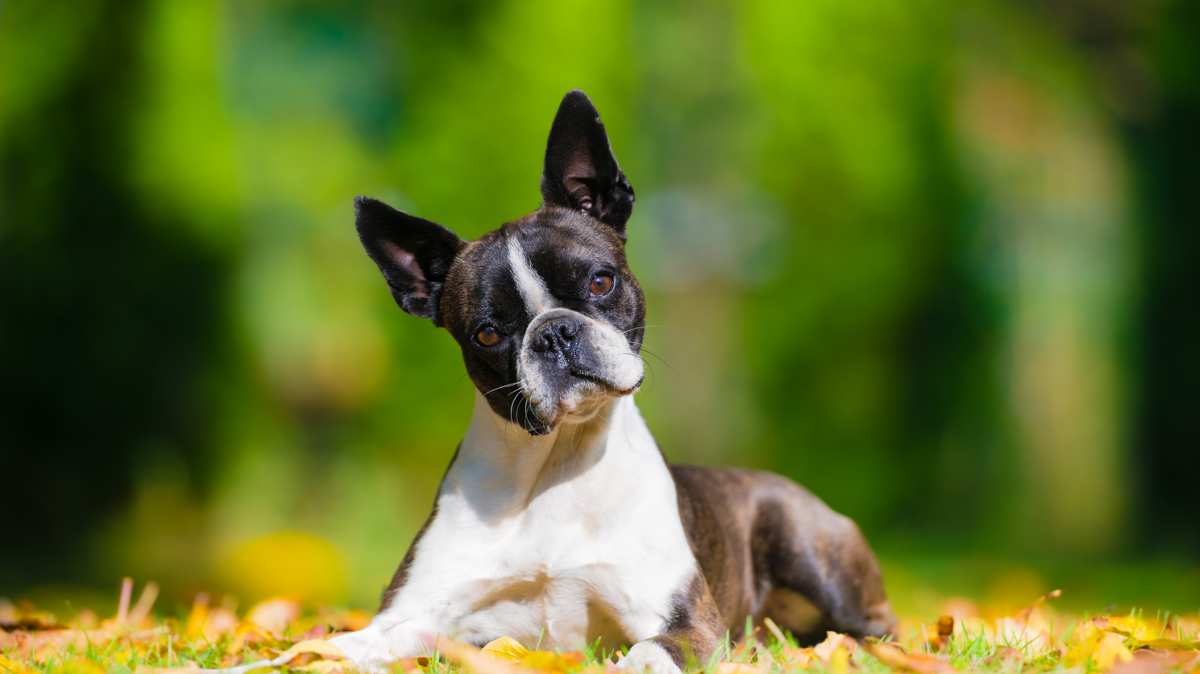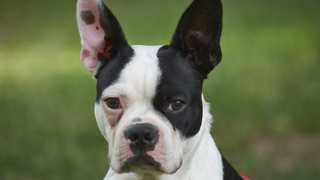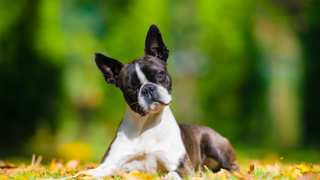The Boston Terrier is a thoroughly American breed whose records and lineage have been painstakingly recorded. As the name suggests, the breed was first developed in Boston, Massachusetts. In 1870 a Boston man named Robert C. Hooper bought a dog named Judge. Judge, who would in time come to be known as Hooper's Judge, was a mix of an English Bulldog and a white English Terrier. This dog became the patriarch of the breed that would come to be known as the Boston Terrier; it is now believed that all Boston Terriers can trace part of their lineage to Hooper's Judge. Judge and his progeny were bred with French Bulldogs to refine certain physical and temperamental characteristics. One of the goals of the selective breeding was to make the dogs smaller. It was common for early Boston Terriers to weigh up to 44 pounds, though Judge himself was only about 30 pounds. Today the breed has an upper limit of only 25 pounds.
By 1889 these dogs had become considerably popular in the New England area, and a club called the American Bull Terrier Club was formed (they soon changed the name to the Boston Terrier Club at the behest of James Watson, a well-known writer). In 1893 the Boston Terrier became the first American born breed to be admitted membership to the American Kennel Club, and is today one of only ten American breeds recognized by the club. It is also recognized as the first non-sporting dog to have originated in the United States.
In its early years, the Boston Terrier's coat color and markings were not deemed of high importance, but that was to change in the 20th century. The characteristic tuxedo-like markings have become a standard feature for the breed, helping earn it the nickname "the American Gentleman." The breed skyrocketed in popularity during the early 20th century; by 1915, Boston Terriers were the most popular breed in the United States, and remained in the top ten most popular breeds until the 1960's. Today the breed ranks around the 23rd most popular according to the American Kennel Club.
This dog has been a favorite of celebrities since the early 1900's. The silent film star Pola Negri was a great fan of the breed, and reportedly took her Boston Terrier, Patsy, with her everywhere she went. One night, a restaurant she wished to dine at refused to let the dog enter. Negri became irate and cried out "No Patsy, no Pola. Goodbye forever!"
In 1976, the Boston Terrier was chosen as the bicentennial dog of the U.S. Three years later, in 1979, the breed was named the official state dog of Massachusetts. A number of educational institutions have a Boston Terrier as their mascot, including Boston University, Wofford College in South Carolina, and Redlands High School in California.




